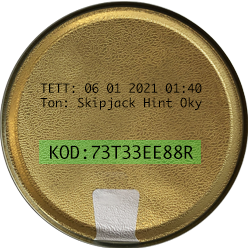300 young lobsters bred by Çanakkale University meet the sea in collaboration with Dardanel
Dardanel, Turkey's expert in fish and seafood products, collaborated with Çanakkale Onsekiz Mart University (ÇOMÜ) Faculty of Marine Sciences and Technology to draw attention to the declining fishing resources in the country and emphasize that these resources can be supported through aquaculture.
As part of the project, a study was conducted to increase the population of the native lobster species, Homarus Gammarus, also known as the European lobster, found in Turkish waters. For the study, a successful model was adopted from the UK, where this lobster species is cultivated and released into its natural habitat, supporting the sustainable population of lobsters in the wild.
At the Marine Living Organisms Research and Application Center belonging to the Faculty of Marine Sciences and Technology at the ÇOMÜ Dardanos Campus, under the leadership of Prof. Dr. Umur Önal, a team raised hundreds of young lobsters from the larval stage in special pools.
Artificial reefs were created beneath the mussel farm
An event called "Do Good, Throw It into the Sea" was organized in the Çanakkale Strait to release the lobsters that had reached the size suitable for release into the sea. The lobsters, bred for the first time in Turkey, were released into special reefs created by Dardanel under the mussel farm in Gelibolu.
With the participation of Dardanel Chairman of the Board Niyazi Önen and Çanakkale Onsekiz Mart University Rector Prof. Dr. Sedat Murat, 300 young lobsters met the sea during the release operation.
This pilot study marks the first step towards increasing the number of lobsters living in Turkish waters, which were abundant in the past in the Çanakkale Strait. In the coming years, the aim is to release more young lobsters into the sea and increase their survival rates in nature with the contribution of artificial reefs created under the Dardanel mussel farm. Thus, lobsters can sustain their lives under the protection of Dardanel without being exposed to fishing pressure.
As part of the project, a study was conducted to increase the population of the native lobster species, Homarus Gammarus, also known as the European lobster, found in Turkish waters. For the study, a successful model was adopted from the UK, where this lobster species is cultivated and released into its natural habitat, supporting the sustainable population of lobsters in the wild.
At the Marine Living Organisms Research and Application Center belonging to the Faculty of Marine Sciences and Technology at the ÇOMÜ Dardanos Campus, under the leadership of Prof. Dr. Umur Önal, a team raised hundreds of young lobsters from the larval stage in special pools.
Artificial reefs were created beneath the mussel farm
An event called "Do Good, Throw It into the Sea" was organized in the Çanakkale Strait to release the lobsters that had reached the size suitable for release into the sea. The lobsters, bred for the first time in Turkey, were released into special reefs created by Dardanel under the mussel farm in Gelibolu.
With the participation of Dardanel Chairman of the Board Niyazi Önen and Çanakkale Onsekiz Mart University Rector Prof. Dr. Sedat Murat, 300 young lobsters met the sea during the release operation.
This pilot study marks the first step towards increasing the number of lobsters living in Turkish waters, which were abundant in the past in the Çanakkale Strait. In the coming years, the aim is to release more young lobsters into the sea and increase their survival rates in nature with the contribution of artificial reefs created under the Dardanel mussel farm. Thus, lobsters can sustain their lives under the protection of Dardanel without being exposed to fishing pressure.

 " width="248" height="244" alt="Dardanel"/>
" width="248" height="244" alt="Dardanel"/>